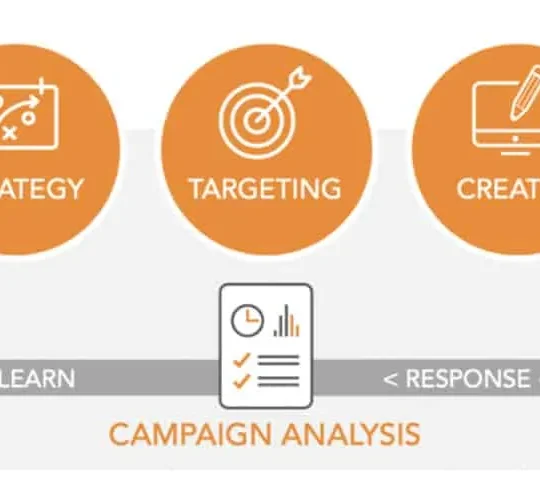Areas of expertise are a powerful tool for professionals looking to distinguish themselves in today’s competitive job market. Whether you’re a job seeker, entrepreneur, or simply striving for professional growth, clearly defining your areas of expertise can help you stand out from the crowd and establish yourself as a credible and knowledgeable professional. In this comprehensive guide, we will explore the concept of areas of expertise, their importance, and how to identify and showcase them effectively.

Table of Contents
What Are Areas of Expertise Exactly?
Areas of expertise refer to specific subjects, skills, or knowledge domains in which an individual has acquired extensive experience and proficiency. These areas can encompass a wide range of professional abilities, from technical skills like coding and web development to soft skills such as leadership, communication, and problem-solving. They represent the realm of expertise that an individual has cultivated through education, training, and practical experience.
Having well-defined areas of expertise is crucial for professionals as it establishes their credibility and demonstrates their ability to excel in specific roles or industries. It enables employers, clients, and business partners to have confidence in your skills and knowledge, making you a valuable asset in the workplace.
The Importance of Areas of Expertise in Life
Clearly defining your areas of expertise offers several benefits that can enhance your professional growth and success:
1. Differentiation in the Job Market
In a competitive job market, having clearly defined areas of expertise sets you apart from other candidates. It helps you stand out and positions you as a specialist in your field. Employers are more likely to consider candidates with specific expertise as they can bring specialized knowledge and skills to the table.
2. Increased Professional Opportunities
By showcasing your areas of expertise, you open doors to a wider range of professional opportunities. Employers and clients actively seek individuals who possess the necessary skills and knowledge to tackle complex projects and deliver exceptional results. Your areas of expertise make you a valuable resource and increase your chances of being considered for exciting projects, promotions, or entrepreneurial ventures.
3. Focus and Direction in Professional Development
Identifying your areas of expertise helps you focus your professional development efforts. Instead of spreading your time and energy across various skills and subjects, you can concentrate on honing the specific skills that align with your areas of expertise. This focused approach allows you to deepen your knowledge and become a true specialist in your field.
4. Enhanced Professional Reputation
Establishing yourself as an expert in specific areas elevates your professional reputation. As you consistently demonstrate your expertise, others recognize your authority and seek your guidance and insights. This recognition can lead to speaking engagements, industry recognition, and increased opportunities for collaboration and thought leadership.
Identifying Your Areas of Expertise
Identifying your areas of expertise is a crucial step in leveraging your professional potential. Here are some steps to help you identify and refine your areas of expertise:
1. Self-Reflection and Assessment
Begin by conducting a self-assessment to identify your strengths, skills, and interests. Consider your past experiences, education, and training to identify areas where you excel and have gained substantial knowledge. Reflect on the tasks or subjects that come naturally to you and those that you enjoy the most. This self-reflection will provide valuable insights into your areas of expertise.
2. Feedback from Others
Seek feedback from colleagues, mentors, and friends who have observed or worked with you. They can provide objective perspectives on your strengths and areas where you excel. Their insights may uncover skills or talents that you may have overlooked or underappreciated.
3. Personality and Aptitude Tests
Take advantage of personality and aptitude tests to gain further clarity about your natural talents and inclinations. Tests like the Myers-Briggs Type Indicator (MBTI) or the Strong Interest Inventory can provide valuable insights into your personality traits and areas where you are likely to excel.
4. Research and Exploration
Conduct thorough research into your areas of interest to determine the demand and potential for growth in those fields. Identify emerging trends, challenges, and opportunities within your areas of interest. This research will help you align your areas of expertise with the evolving needs of the job market or your industry.

5. Narrowing Down Your Areas of Expertise
After gathering information and insights, narrow down your list of potential areas of expertise. Evaluate each area based on your proficiency, experience, and the impact it could have on your career. Consider the demand and marketability of each area and select those that align with your long-term goals and aspirations.
Showcasing Your Areas of Expertise
Once you have identified your areas of expertise, it is crucial to effectively showcase them to maximize their impact. Here are some strategies for showcasing your areas of expertise:
1. Resume and LinkedIn Profile
Incorporate your areas of expertise into your resume and LinkedIn profile. Create a dedicated section where you highlight your key skills and areas of specialization. Use relevant keywords to increase the visibility of your profile to employers and recruiters searching for specific expertise.
2. Professional Networking
Leverage your professional network to showcase your areas of expertise. Attend industry events, conferences, and webinars where you can share your knowledge and expertise with others. Engage in discussions, contribute to online communities, and participate in relevant forums to establish yourself as a thought leader in your areas of expertise.
3. Thought Leadership
Produce content that highlights your expertise and demonstrates your thought leadership. Write articles, blog posts, or whitepapers that delve into topics within your areas of expertise. Share your insights and expertise through public speaking engagements, podcasts, or webinars. This content will help you build a reputation as an authority in your field.
4. Professional Certifications
Obtain relevant certifications or credentials to validate your areas of expertise. Professional certifications not only enhance your credibility but also demonstrate your commitment to continuous learning and professional development. Display your certifications prominently on your resume and LinkedIn profile.
5. Mentorship and Collaboration
Offer your expertise and guidance to others through mentorship or collaboration opportunities. Sharing your knowledge and assisting others in their professional growth not only reinforces your own expertise but also expands your network and opens doors to new opportunities.
Examples of Areas of Expertise
Areas of expertise can vary widely depending on the industry, profession, or individual’s skill set. Here are some examples of areas of expertise across various fields:
- Software Development: Programming languages (Java, Python, C++), web development, mobile app development, database management.
- Marketing: Digital marketing, social media management, content creation, SEO optimization, market research.
- Project Management: Agile project management, risk assessment and mitigation, stakeholder management, budgeting and resource allocation.
- Finance: Financial analysis, investment management, risk assessment, financial modeling, tax planning.
- Human Resources: Recruitment and selection, employee relations, performance management, training and development, HR policy development.
- Sales: Account management, lead generation, negotiation, sales strategy, customer relationship management (CRM).
- Healthcare: Medical diagnosis, patient care management, medical research, healthcare administration, electronic medical records (EMR) systems.
- Design: Graphic design, user experience (UX) design, web design, branding, illustration.
- Leadership: Strategic planning, team management, conflict resolution, decision-making, change management.
- Communication: Written and verbal communication, public speaking, presentation skills, storytelling, media relations.
These examples illustrate the diverse range of areas of expertise that professionals can develop within their respective fields.
Areas of expertise are invaluable for professionals seeking to differentiate themselves and achieve success in their careers. By clearly defining and showcasing your areas of expertise, you can position yourself as a knowledgeable and credible professional, opening doors to new opportunities and professional growth. Remember to regularly reassess and adapt your areas of expertise to remain relevant in a rapidly evolving job market.
Identifying and cultivating your areas of expertise is a continuous process that requires self-reflection, feedback, and ongoing learning. Embrace the opportunity to develop your unique set of skills and knowledge, and confidently navigate your professional journey with a clear focus on your areas of expertise.







